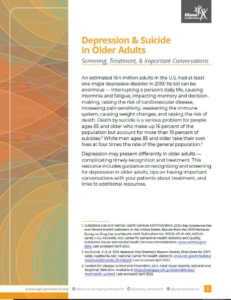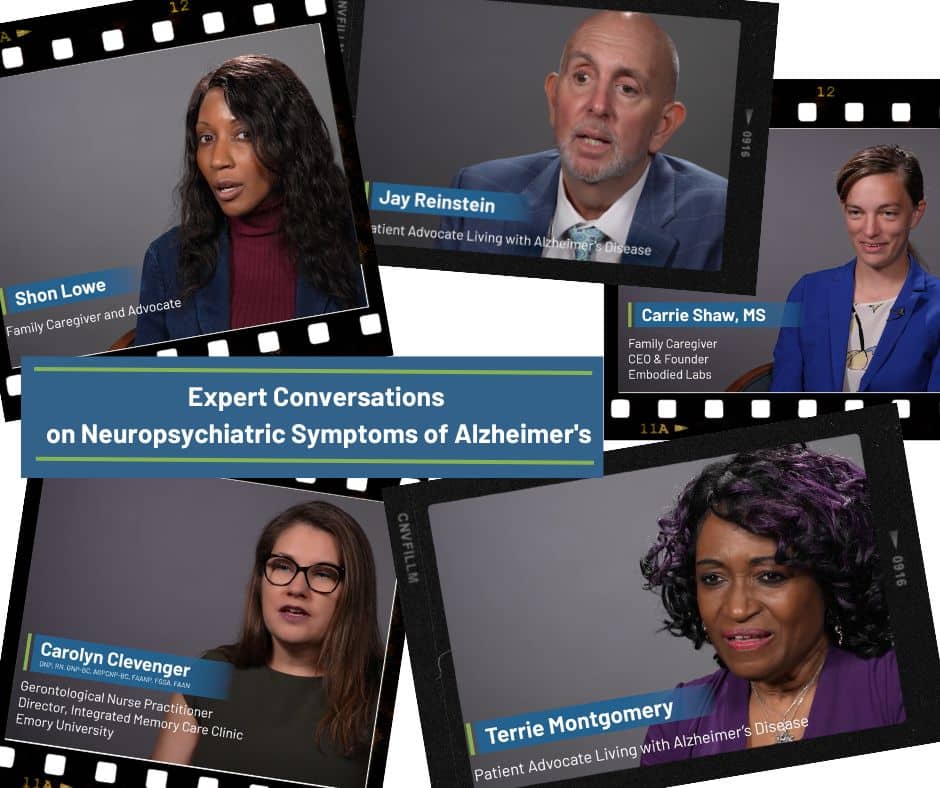More than 20 percent of older adults aged 60 and over suffer from a mental or neurological disorder. The most common neuropsychiatric conditions are dementia and depression, according to the World Health Organization. Substance-use disorders related to use of alcohol, illicit drugs, and prescription medications are increasing in prevalence among older adults, along with chronic pain issues that may complicate treatment access.
Depression & Suicide in Older Adults: Screening, Treatment & Important Conversations
Published May 25, 2022

An estimated 19.4 million adults in the U.S. had at least one major depressive disorder in 2019. Its toll can be enormous — interrupting a person’s daily life, causing insomnia and fatigue, impacting memory and decision-making, raising the risk of cardiovascular disease, increasing pain sensitivity, weakening the immune system, causing weight changes, and raising the risk of death. Death by suicide is a serious problem for people ages 65 and older who make up 16 percent of the population but account for more than 19 percent of suicides. White men ages 85 and older take their own lives at four times the rate of the general population.
Depression may present differently in older adults — complicating timely recognition and treatment. This resource includes guidance on recognizing and screening for depression in older adults, tips on having important conversations with your patients about treatment, and links to additional resources.
The Healthy Aging Blog
Videos on Mental Health

Webinar: Financing the Cure: Exploring the Ecosystem of Alzheimer’s Disease Research Funding
The Accelerate Cures/Treatments for All Dementias (ACT-AD) held a webinar on July 13, 2021 for an in-depth…
more.
Webinar: Research and Clinical Development in Lewy Body Dementia
On December 7, 2020, ACT-AD held a webinar on cutting-edge research on Lewy Body dementia (LBD). The webinar…
more.
Webinar: The Emerging Antimicrobial Protection Hypothesis of Alzheimer’s Disease
The Accelerate Cure/Treatments for Alzheimer’s Disease (ACT-AD) Coalition held an educational webinar on April 18, 2019 on…
more.


